
 A small, troubled high school in East Harlem seemed an unlikely place to find students for a nationwide robot-building contest, but when a neighborhood after-school program started a team last winter, 19 students signed up. One was Amadou Ly, a senior who had been fending for himself since he was 14.
A small, troubled high school in East Harlem seemed an unlikely place to find students for a nationwide robot-building contest, but when a neighborhood after-school program started a team last winter, 19 students signed up. One was Amadou Ly, a senior who had been fending for himself since he was 14.
The project had only one computer and no real work space. Engineering advice came from an elevator mechanic and a machinist's son without a college degree. But in an upset that astonished its sponsors, the rookie team from East Harlem won the regional competition last month, beating rivals from elite schools like Stuyvesant in Manhattan and the Bronx High School of Science for a chance to compete in the national robotics finals in Atlanta that begins tomorrow.
Yet for Amadou, who helps operate the robot the team built, success has come at a price. As the group prepared for the flight to Atlanta today, he was forced to reveal his secret: He is an illegal immigrant from Senegal, with no ID to allow him to board a plane. Left here long ago by his mother, he has no way to attend the college that has accepted him, and only a slim chance to win his two-year court battle against deportation.
In the end, his fate could hinge on immigration legislation now being debated in Congress. Several Senate bills include a pathway for successful high school graduates to earn legal status. But a measure passed by the House of Representatives would make his presence in the United States a felony, and both House and Senate bills would curtail the judicial review that allows exceptions to deportation.
Meanwhile, the team's sponsors scrambled to put him on a train yesterday afternoon for a separate 18-hour journey to join his teammates from Central Park East High School at the Georgia Dome. There, more than 8,500 high school students will participate in the competition, called FIRST (For Inspiration and Recognition of Science and Technology) by its sponsor, a nonprofit organization that aims to make applied sciences as exciting to children as sports.
"I didn't want other people to know," said Amadou, 18, referring to his illegal status. "They're all U.S. citizens but me."
Most team members learned of his problem only yesterday at a meeting with Kristian Breton, 27, the staff member at the East Harlem Tutorial program who started the team, inspired by his own experience in the competition when he was a high school student in rural Mountain Home, Ark.
Alan Hodge, 18, echoed the general dismay. "We can't really celebrate all the way because it's not going to feel whole as a team without Amadou," he said.
Amadou's teammates have struggled with obstacles of their own. When Mr. Breton called a meeting of parents to collect permission slips last week, only five showed up. One boy's mother had a terminal illness, Mr. Breton learned. Another mother lived in the Dominican Republic, leaving an older sibling to manage the household. One of the six girls on the team said her divorced parents disagreed about letting her go, and her mother, who was willing to approve the trip, lacked the $4 subway fare to get to the meeting.
But Amadou's case stands out. As he tells it, with corroboration from immigration records and other documents, he was 13 and spoke no English when his mother brought him to New York from Dakar on Sept. 10, 2001. He was 14 when she went back, leaving him behind in the hope that he could continue his American education.
By then, he had finished ninth grade at Norman Thomas High School in a program for students learning English as a second language. But his mother left instruction for him to take a Greyhound bus to Indianapolis, where a Senegalese woman friend had agreed to take him in and send him to North Central High School there.
"It was the same thing when I was in Africa," he said, describing a childhood spent shuttling between his grandmother and the household of his father, a retired police officer with 12 children and three wives.
The woman in Indiana, who had four children of her own, changed her mind about keeping him after his sophomore year, and he returned by bus to New York in the summer of 2004. "I had to find a way to help myself for food and clothes, and to buy some of my school supplies," he said, recalling days handing out fliers for a clothing store on a Manhattan street corner. "I ended up living with another friend — I'm under age and I can't live alone."
Taking shelter with a taxi driver, a friend of the family who could sign his report cards, Amadou enrolled in 11th grade at Central Park East. Under longstanding Supreme Court decisions, children have a right to a public education regardless of their immigration status, and in New York, as in many other cities, a "don't ask, don't tell" approach to legal status has prevailed for years.
But after the 9/11 attacks, practices around the country changed. On a rainy highway in Pennsylvania on Nov. 7, 2004, Amadou met a very different attitude when he had the bad luck to be a passenger in a car rear-ended by a truck. The state trooper who responded questioned his passport and school ID, and summoned federal immigration officers, who began deportation proceedings.
There is no right to a court-appointed lawyer in immigration court, and though Amadou's friends hired one for him at first, records show that the lawyer soon withdrew. "We really couldn't afford to pay," Amadou explained.
By the time the case was finally sent to a special juvenile docket in federal court after several adjournments, Amadou had already turned 18, closing off some legal options that can lead to a green card for juveniles, said Amy Meselson, a Legal Aid lawyer who took on the case last week.
At this point, she said, his best chance is probably a long shot: a measure included in an amendment to many Senate immigration bills, known as the Dream Act, which offers a path to citizenship to young people of good character who have lived in the United States for five years, been accepted to college, or earned a high school diploma or the equivalent.
Opponents say the measure will encourage illegal immigrants, and subsidize their education at the expense of American children and their taxpaying parents.
But mentors for Amadou's team, which calls itself "East Harlem Tech," seem to have no ear for such arguments.
"He's been a hard-working and diligent student with mathematical ability and a scientific mind," said Rhonda Creed-Harry, a math teacher at Central Park East. But though he has been accepted at the New York City College of Technology in Brooklyn, he said he could not attend because he does not qualify for financial aid.
Ramon Padilla, a team mentor who stopped a year short of a college degree himself and now works in the audio-visual department at Columbia University, called the news that Amadou faced deportation "overwhelming."
"I'm telling you, he's a great kid, a very talented kid," he said, adding that Amadou played an important role in building the robot, with help from Frank Sierra, a buddy of Mr. Padilla who repairs elevators. Starting from a standard set of parts, each team had six weeks to design a robot that could move down a center line and throw balls into a goal. In the last round of the competition, Amadou helped his team form a winning alliance with teams from Morris High School in the Bronx and Staten Island Tech, which both advanced to the finals as well.
Mr. Breton, who made last-minute trips to the Bronx to gather parental permissions, said he was determined not to leave Amadou behind. "I started with 19 people, and I want to take 19 people to Atlanta," he told the student. "I want to make sure that everybody has the full opportunity, because I feel you've earned it."
Amadou returned the compliment. "Because of him, it happened," he said.
Yet on the train to Atlanta, accompanied by another staff member, Amadou was still worried. Bloomberg L.P., which is underwriting the full cost of the team's trip to Atlanta, plans to display its robot at the company's headquarters in New York and invite the team up to celebrate their achievement. He said he was afraid that for lack of the right ID he might be turned away from the building.






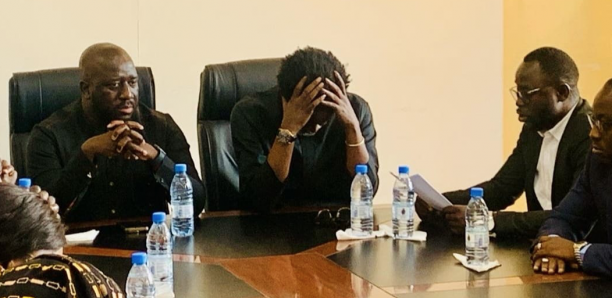




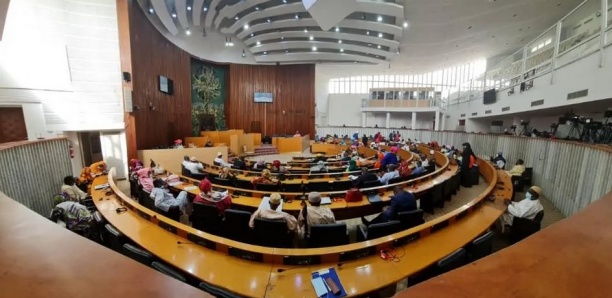






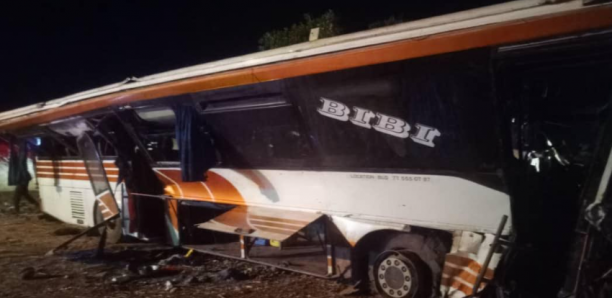

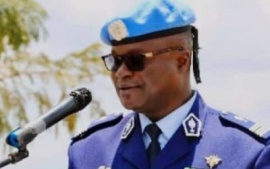



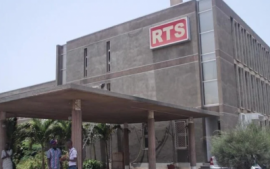





0 Commentaires
Participer à la Discussion